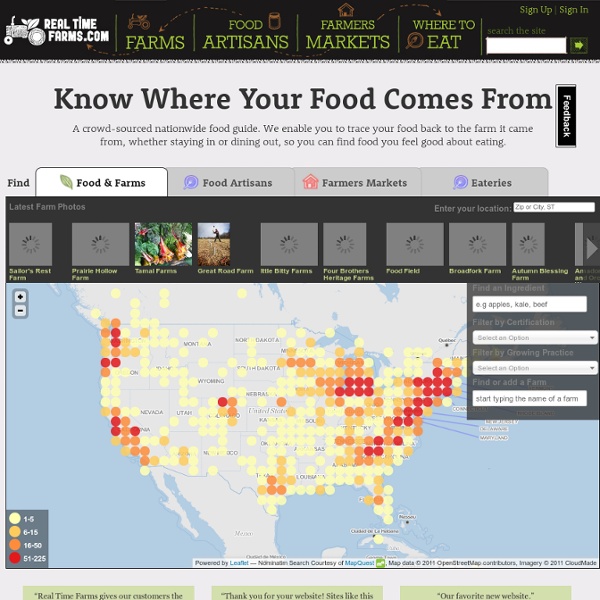



WWOOF - World Wide Opportunities on Organic Farms The Dirt on Organics: Essential Answer - January/February 2013 By Anna Hallingstad, Lindley Mease, Priya Fielding-Singh, Chad La Tourette and Isabella Akker I've heard news reports about a Stanford School of Medicine study that found organic foood isn't any healthier than conventionally grown food. If that's the case, is it worth paying the premium price? — Anonymous Grocery stores these days offer us a lot of choice. The study sought to compare the health effects of organic and conventional foods, focusing in nutrient and contaminant levels. The researchers compiled 237 studies addressing the nutritional benefits of organic and conventionally grown foods. Nutritionally, the Stanford team found few differences. These differences in what isn’t in organic food were largely overshadowed in the initial press release and by media outlets that first reported on the study. Besides, it’s not at all clear that the Stanford study is conclusive when it comes to nutrient content. In the meantime, the drawbacks of conventional food are clear.
justfortheloveofit.org | Promoting Skillsharing | Learn Skills, share tools, save money and make great new friends The People's Book Project Eccentric town, Todmorden, growing ALL its own veg By Vincent Graff Updated: 16:31 GMT, 10 December 2011 Admittedly, it sounds like the most foolhardy of criminal capers, and one of the cheekiest, too. Outside the police station in the small Victorian mill town of Todmorden, West Yorkshire, there are three large raised flower beds. If you’d visited a few months ago, you’d have found them overflowing with curly kale, carrot plants, lettuces, spring onions — all manner of vegetables and salad leaves. Today the beds are bare. Food for thought: Todmorden resident Estelle Brown, a former interior designer, with a basket of home-grown veg Well, that’s not quite correct. ‘I watch ’em on camera as they come up and pick them,’ says desk officer Janet Scott, with a huge grin. For the vegetable-swipers are not thieves. The vegetable plots are the most visible sign of an amazing plan: to make Todmorden the first town in the country that is self-sufficient in food. ‘It’s a very ambitious aim. ‘Nothing,’ says Mary. What’s to stop me nabbing all the apples?
The Dirt on Organics: Nitty-gritty - January/February 2013 I've heard reports about a Stanford School of Medicine study that found that organic food isn't any healthier than conventionally grown food. If that's the case, is it worth paying the premium price? Continually stumped by her patients’ questions about the benefits of organic food, Dr. Dena Bravata of Stanford Medical School grew curious herself. So she and a team of researchers set out to investigate the health and safety differences between organic and conventional fruits, vegetables, eggs, grains, dairy and meat. Using meta-analysis, Bravata’s team pooled together 237 peer-reviewed studies addressing the nutritional benefits of organic and conventionally grown foods. The researchers found few differences in the nutritional content of organic and conventional foods. That said, the verdict is not final on the nutritional differences between organic and conventional foods. Why did the Stanford study inspire such controversy after other studies received little attention?
Khan Academy AnonOps :: Index Smart Meters, Science and Belief Annie Tritt for The New York TimesDeborah Tavares, with a sign protesting smart-meter installations, in Sebastopol, Calif. In researching Monday’s article about opposition to smart meters, I found myself once again facing a dilemma built into environmental reporting: how to evaluate whether claims of health effects caused by some environmental contaminant — chemicals, noise, radiation, whatever — are potentially valid? I turned, as usual, to the peer-reviewed science. But some very intelligent people I interviewed had little use for the existing (if sparse) science. How, in a rational society, does one understand those who reject science, a common touchstone of what is real and verifiable? The absence of scientific evidence doesn’t dissuade those who believe childhood vaccines are linked to autism, or those who believe their headaches, dizziness and other symptoms are caused by cellphones and smart meters. What gives? Dr. Here, slightly edited and condensed, is Mr.
Sugar Mountain Farm | All Natural Pastured Pigs, Poultry, Sheep, Dogs and Kids in the mountains of Vermont Pangea | Non Profit Organization - United Towards a Sustainable Future There are no translations available. Συνάντηση φίλων Pangea & The venus projectΜουσείο Ελληνικής ΓαστρονομίαςΑγ. Δημητρίου 13 Ψυρρή, Σάββατο 19 Οκτώβρη στις 6 το απόγευμα Σε μια εποχή που κάθε τι παλιό, θεσμοί, ιδεολογίες, συνήθειες και παραδόσεις καταρρέουν, στερούμενες πανανθρώπινων αξιακών βάσεων και ολιστικής οπτικής του κόσμου και των προβλημάτων μας, η ανάδειξη και η εφαρμογή της πρότασης του Venus Project ως μόνης βιώσιμης και ασφαλούς, με βάση τις πραγματικές δυνατότητες του σήμερα, γίνεται όλο και πιο επίκαιρη, όλο και πιο αναγκαία για το όφελος όλων των ανθρώπων.
Occupy Wall Street | NYC Protest for World Revolution Los tomates volverán a saber a tomate Más noticias de: biotecnología, genética Ampliar Antonio Granell ha probado uno de los tomates más sabrosos del planeta. El secreto de su sabor se encuentra en uno de sus aproximadamente 35.000 genes, el llamado GLK2. En los entresijos genéticos de la planta hay muchísimo dinero en juego. Más azúcares El gen de marras, cuentan hoy los científicos en la revista Science, tiene las instrucciones para formar una proteína, la GLK2, que aumenta la capacidad de la fruta para transformar la energía del sol en azúcares mediante la fotosíntesis. Los científicos han detectado que la maduración uniforme del tomate buscada durante décadas va asociada a una mutación en el gen GLK2. Granell ha cultivado en su laboratorio de Valencia tomates modificados genéticamente con dosis extra de GLK2, pero cree que “no será preciso hacer plantas transgénicas para tener tomates con mejor sabor, porque basta con cruzar las plantas con otras variedades tradicionales con más GLK2 e ir seleccionando la descendencia”.